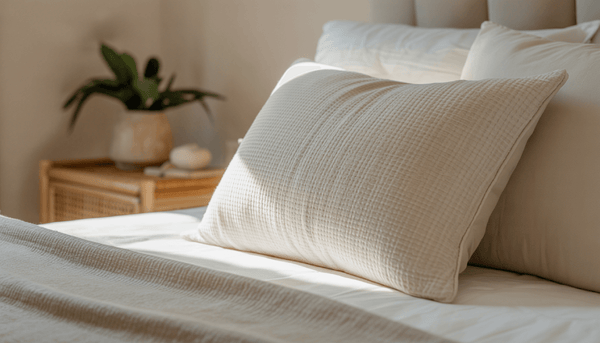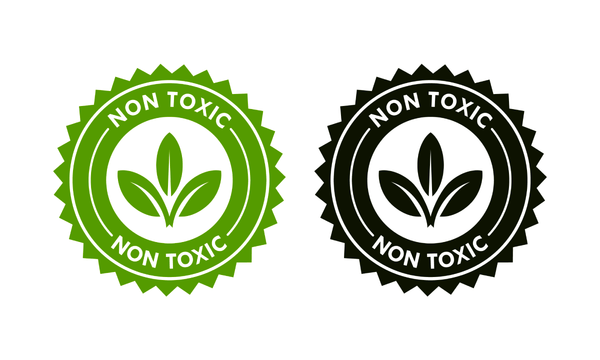Eucalyptus vs. Cotton Sheets: Explained
Cotton. It’s an extremely common fabric for many items, but especially for bedding. For years and years, cotton was the standard material for bedding in all forms: sheets, pillow cases, the shells of comforters and for duvet covers. As technology develops and new fabrics are created, consumers have become more discerning when it comes to the fabrics and materials they lean toward. There are also more considerations. Of course, quality and aesthetics are always going to be important, but sustainability, a brand’s mission and values, and a long list of benefits are even bigger considerations.
And while we know that veering away from traditional bedding materials and into newer, performance fabrics can be exciting, but we also understand that there are many questions surrounding a potential purchase, like: Which performance material is best for me? Why eucalyptus vs. cotton? Isn’t all bedding made to function the same way?
We’re here to help answer these questions, and to share a bit more about our Eucalyptus Bedding Collection, and the makeup of the material.
Let’s start with the product we carry: Eucalyptus Sheets.
Creating sheets from this material was the clear choice for our brand. Sustainable, cooling, and ultra comfortable, we wanted to develop bedding that was performance focused while also retaining the aesthetic and luxury customers have come to know from our brand. Let’s talk a little more about the material, itself:
Eucalyptus, for a long time, was the tree most used to create lyocell fabrics. Today, many other trees can be used, including bamboo. But for lyocell, and specifically TENCEL™, the name brand for lyocell, Eucalyptus is the most common raw material used. While the technology for creating lyocell is not new, it has become more advanced and refined to create performance products as sustainably as possible.
Our Eucalyptus Bedding Collection is made from TENCEL™ lyocell material. Our bedding in this collection is crafted from 100% TENCEL™ lyocell fibers, which are made from a blend of eucalyptus and other wood sources from sustainably managed farms. In order to be able to use the trademarked name TENCEL™, a brand needs to partner with their parent company, Lenzing, which we do here at Sijo.
How eucalyptus bedding is created:
- Source the raw materials. This would be the Eucalyptus wood.
- Create pulp from the wood.
- Use a closed loop process which includes organic solvent to spin the pulp into fibers.
- Create yarn from the fibers.
- Manufacture the bedding from the fibers.
We use organic solvents in our creation process, which is closed loop. This means we recycle the organic solvents by using them from process to process so as to not waste them, or use excessive amounts of water in the product creation process. This makes lyocell a more sustainable fabric option, which is an important component of our brand mission. We’re always looking to stay environmentally friendly, so that when we create items, the entire process is done as responsibly as possible.
What is cotton fabric, and how is it made?
There are similar regulations surrounding cotton, both as a raw material and as fabric, especially as consumers become more aware of the processes that go into manufacturing products, and as they work toward creating healthier home environments.
When it comes to the process for creating cotton fabric, it has some similarities to eucalyptus. Cotton is grown, harvested, cleaned, spun into fibers, and made into yarn and then bedding or clothing. However, the creation of cotton bedding uses more water, both in the growth of the raw material and the actual manufacturing process, making the process less sustainable. Further, the use of organic cotton as opposed to more commercial cotton is left to the brand or manufacturer’s discretion. So reading up on potential purchases and learning about the manufacturing process and sourcing is important, no matter which material you ultimately choose.
Which is softer: Cotton or Eucalyptus?
That depends on your own preferences. Cotton can be manufactured into bedding with a sateen or percale weave. One is smoother and silkier, while the other is a more traditional feeling fabric. Both versions can be very soft. Cotton is a lovely material! But the softness depends on the quality of the material and the way it was produced. Eucalyptus sheets, too, are incredibly soft due to the nature of the creation process. But, their measure for softness is different. Thread count is a measurement that many people equate with a fabric’s quality. This, however, mainly applies to cotton fabrics. Higher thread counts are meant to denote higher quality and increased softness. However, some fabrics can have the same quality and softness at a lower thread count than others, making this an inconsistent measurement. Because of this inconsistency, the FTC does not recognize thread count as an authorized quality measurement, so many less traditional fabrics, like eucalyptus, are not typically measured by that same standard.
If I’m a hot sleeper, is one material better than the other?
The key difference between eucalyptus sheets and cotton sheets is the cooling benefit. Cotton is, of course, airy and breathable. But there is a temperature regulating component in eucalyptus sheets that keeps them cooler and better able to wick away moisture, and this is where TENCEL™ lyocell materials really shine!
Their temperature regulation properties and breathability are incredible, and are often why customers may choose lyocell materials over cotton bedding types. Lyocell does not trap in heat. Rather, it disperses it, keeping sleepers cool. Cotton, as we’ve noted, is a breathable material as well -- it’s why this is a material often used for clothing -- but it does not have the same super smooth and cooling properties.
With this information in mind, we hope you can better understand bedding materials, and which fabric might be more suitable to your home and your needs. When it comes to the eucalyptus vs cotton sheets debate, it’s all about which material seems most comfortable to you and the way you sleep. At Sijo, our goal is to help improve your quality of sleep, and to provide excellent, comfortable, luxurious and eco-friendly products to help you do just that.
Shop our eucalyptus collection:



